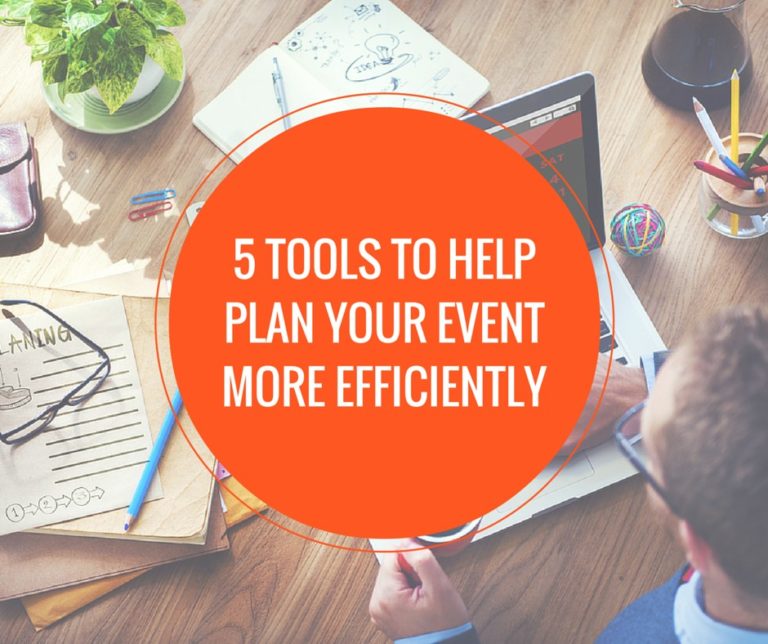Event sponsorship can be an amazing opportunity for you to level up your events. But what exactly is it? And what forms can it take? Keep reading to find out more about sponsorship for events and how you can use it in your event planning process.
Event Sponsorship Explained
Event sponsorship is a marketing strategy in which a company financially supports or aligns itself with a specific event, such as a concert, sports competition, or festival. This collaboration benefits both the event and the sponsor. Both parties promote each other, and the event gains financial or in-kind support as a result. This strategic partnership can help an event increase brand awareness and credibility, find new partners, build relationships, and increase sales.
While there are many benefits of event sponsorship, it requires planning and strategy to make it highly effective.
6 Types of Sponsorship for Successful Events
There are six main types of event sponsorship that event planners often choose from. The right one for you depends on your event and objectives.
1. Financial Sponsorship
Financial sponsorship is one of the most common forms of sponsorship event planners use. Basically, a sponsor provides monetary support for an event in exchange for whatever is outlined in the sponsorship agreement, often promotional benefits. Event organizers can greatly benefit from this type of sponsorship for several reasons.
First of all, a monetary sponsor helps cover event expenses, such as the venue, marketing, and catering. This makes it easier for your event to stay within budget. This type of sponsorship also brings credibility and prestige to the event, potentially attracting a larger audience. Sponsorship funds can be also used to enhance the event’s offerings, such as securing high-profile speakers, entertainment, or technology upgrades.
2. In-Kind Sponsorship
In-kind sponsorships are another valuable type of sponsorship. In-kind sponsors offer non-monetary contributions to support an event.
In-kind sponsors provide essential goods or services at no cost, reducing the event’s financial burden. This includes items like catering, audio-visual equipment, prizes, or even a venue, all of which enhance the quality of your event without depleting the budget. These days, in-kind sponsors may also make digital contributions. For example, a technology company offering in-kind sponsorship can provide advanced event apps or virtual reality experiences, elevating attendee engagement.
While in-kind sponsors don’t give money to your event for you to spend as you please, you can outline in your sponsorship agreement the goods or services that your event is lacking so you make sure to get the support you need.
3. Promotional Partners Sponsorship
A promotional partners sponsorship is another common type of sponsorship. This is a collaboration in which event planners join forces with a well-known person who promotes their events in a variety of ways on a variety of different social media channels. This type of sponsorship comes with numerous advantages.
Firstly, promotional partners bring a large network and audience to the table, therefore significantly increasing event attendance. This is extremely valuable because your sponsor’s audience already has a relationship with them, so their word will likely have more value than an ad they may randomly find on social media. In fact, 71% of consumers are more likely to buy something due to referrals on social media.
Promotional partners can also offer valuable resources such as marketing expertise and content creation, enriching your event’s promotional strategy and reach.
4. Media Sponsorship
Media sponsorship is a collaboration between an event and media outlets. Getting media coverage for your event can, at times, be difficult, so a media sponsor makes it much easier. Leveraging a media outlet’s platforms, which may include TV, radio, print, or digital channels, significantly boosts event visibility, attracting a wider audience.
Like promotional sponsors, media sponsors also bring their industry expertise to the table, contributing valuable insights that make your event better. Additionally, partnering with media outlets can secure extensive post-event coverage, prolonging the event’s impact and recognition. This can serve as a form of marketing for your future events.
5. Exhibitor Sponsorship
Exhibitor sponsorship is a valuable partnership where event planners collaborate with companies to showcase their products or services within the event venue. This type of sponsorship has several key advantages for event managers. Firstly, exhibitors contribute to the event’s financial success by paying for booth space, which can offset event costs and increase event ROI. They also enhance your event by providing engaging and interactive displays, enriching the attendee’s experience and adding value overall. Exhibitors also often draw in a new, relevant audience interested in their offerings, potentially increasing event attendance and engagement.
6. Social Impact Sponsorship
Social impact sponsorship involves partnering with organizations dedicated to social impact. This offers unique opportunities to make a positive difference while enhancing event success.
Social impact sponsors bring a sense of purpose and goodwill to the event, resonating with socially conscious event attendees. Collaborating with social impact partners demonstrates a commitment to meaningful change. This alignment can attract a more engaged and passionate audience since, these days, people want to support businesses and events that are committed to the same causes they are. In fact, 90% of consumers are more likely to trust businesses that show a sense of social responsibility.
Social impact sponsors also often bring their networks and supporters, broadening the event’s reach and potentially attracting additional sponsors or donors. Partnerships offer opportunities for meaningful content, such as panel discussions or workshops focused on social impact.
How Event Planners Can Find Potential Sponsors
Event planners should go about getting sponsors for an event through a strategic approach. It’s essential to have a clear understanding of your event goals, target audience, and the benefits sponsors can gain from their involvement. With this knowledge, you can then identify potential event sponsors that align with the event’s goals and values. Researching companies or organizations that have sponsored similar events in the past can be a good starting point, as it indicates an existing interest in the industry.
Networking also plays a crucial role in finding the best sponsorships. You can leverage your existing professional connections or attend events similar to yours. Personal referrals and introductions from trusted contacts can also open doors to valuable sponsorship opportunities. Online networking platforms can also be powerful tools for identifying decision-makers within organizations and reaching out to them directly.
After you’ve identified sponsors that align well with your event, it’s time to craft compelling sponsorship proposals that highlight the unique advantages of partnering with your event. These proposals should clearly outline the benefits sponsors will receive, such as brand exposure, access to a targeted audience, or opportunities for engagement. Being creative and flexible with sponsorship offerings, as well as showcasing the success of past events, can make your proposal more attractive to potential sponsors. Consistent follow-up and maintaining open lines of communication are also key to building strong, long-lasting partnerships with sponsors.
How To Choose the Right Type of Sponsorship for You
The right type of sponsorship depends on multiple factors. Here are some considerations to help you make the best choice for your sponsored event:
- Understand your event’s needs: Think about your event’s financial requirements and objectives. Consider factors such as the scale of the event and budget constraints. For example, if your event requires significant funding, you might benefit from getting a financial sponsor.
- Know your audience: Understand your event’s attendees and what they value most. Consider their demographics, interests, and preferences. Tailor your sponsorship approach to align with the interests of your audience. For example, if your attendees are tech-savvy, in-kind digital sponsors might be a good partner.
- Evaluate potential partners: Look for sponsors whose values and goals align with your event and think about what kinds of sponsorship packages benefit them. Perhaps they can’t provide monetary support but can provide in-kind support or promotional support.
- Learn from the past: There is also value in learning from past events. If you try one type of sponsorship and learn it doesn’t work for you, you can always improve upon your strategy for the next event that comes around.
Find Top Event Sponsorship Opportunities With Events.com
Events.com is a platform that offers event planners a comprehensive and efficient way to discover top sponsorship opportunities. By leveraging our sponsorship database, you can load your list of prospective sponsors, create proposals and agreements, and manage your calendar for a successful partnership. With its user-friendly interface, Events.com streamlines your sponsorship management process, ultimately contributing to the success of your partnership. Get a free demo today.




